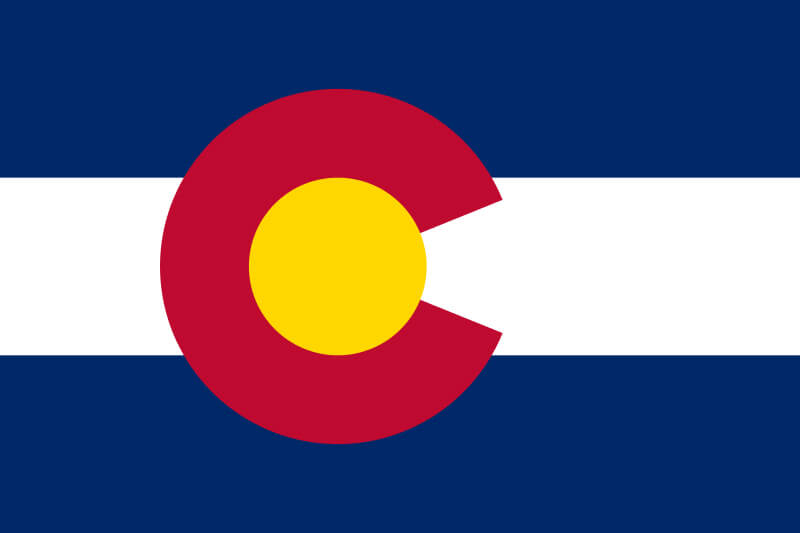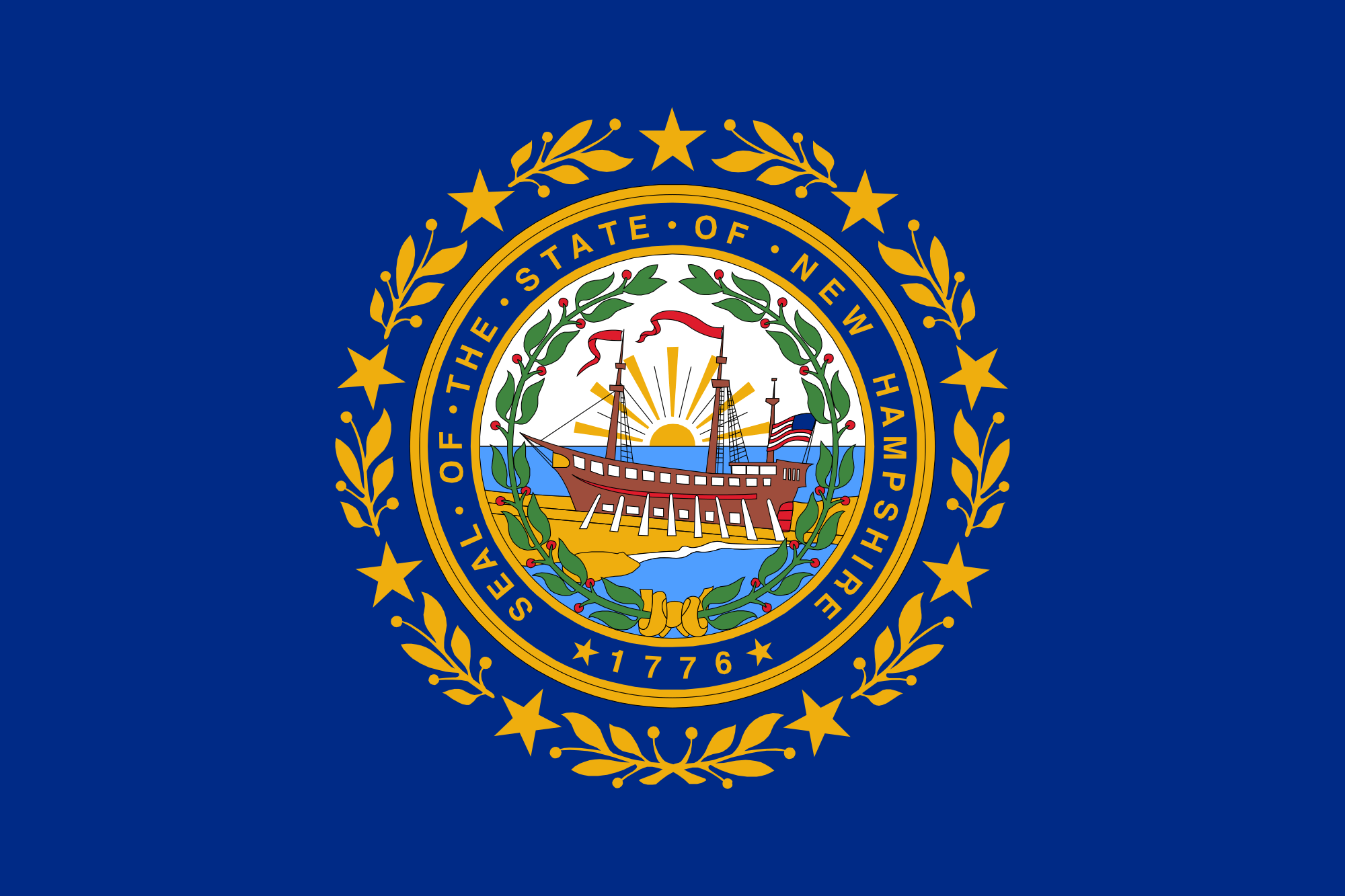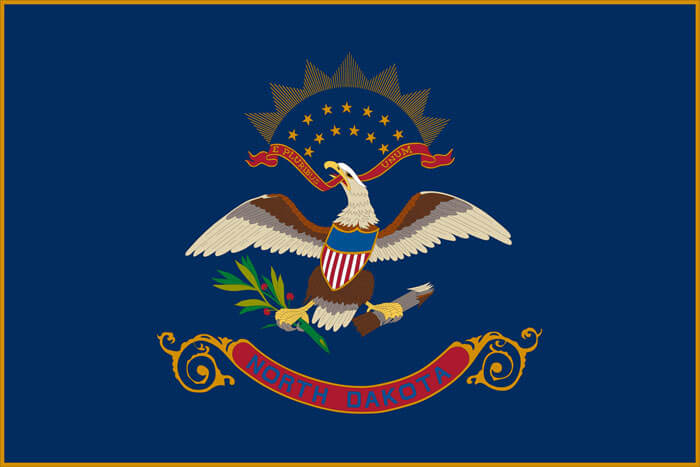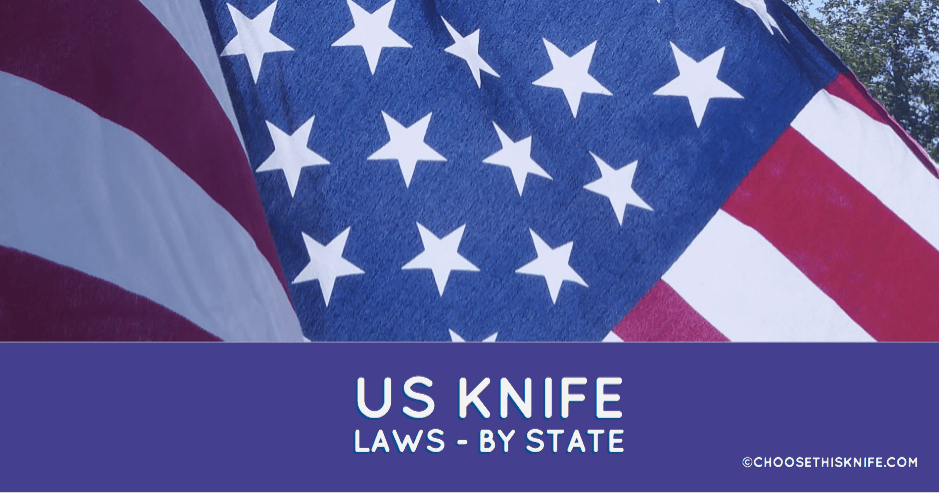US Knife Laws by State
Every state in the US has its own knife laws. If you want to make sure you’re in compliance with your state’s laws, you need to take the time to learn about them. And if you’re a knife-lover who is considering a move to a different state, then you definitely need to learn about how things will be different after your move!
With that in mind, I’ve written this monster guide that covers all the US Knife Laws in 2018 – 2019 and teaches you about the different laws across the 50 states that make up the USA.
Alabama Knife Laws
I’ve already written a detailed post on Knife laws in Alabama and you can read that post in detail here – https://choosethisknife.com/alabama-knife-laws-whats-legal-illegal-and-alabama-state-code
Suffice to say, the Knife laws in the state of Alabama are one of the most open-minded in the US when it comes to knives but there’s a small legal risk associated with some type of knives and similar weapons.
Alaska Knife Laws
Similarly like Alabama, I’ve created a separate post for all knife laws in the state of Alaska since it’s a very popular query that I get from my readers. You can read that detailed post here – https://choosethisknife.com/alaska-knife-laws-whats-legal-illegal-and-alaska-state-code
Unlike Alabama, Alaska does have quite a few rules for carrying knives and it can be a little complicated to comply with all of them.
Arizona Knife Laws
The state of Arizona had fairly restrictive knife laws until 2011, but in that year the laws were changed to legalize the ownership of just about every variety of knife. All lengths and types of knives can be legally purchased, owned, and carried in most situations.

Pocket knives can be carried in concealment by anyone, but beyond that, there are age-based restrictions. Anyone under 21 must openly carry knives that go beyond the basic pocket knife variety.
Arizona’s freedoms come with certain restrictions. Knives cannot be brought onto school property. Anyone carrying a concealed knife that isn’t a pocket knife must alert any police officer who they might come into contact with.
Arkansas Knife Laws
The state of Arkansas used to have restrictive knife laws, but in 2011 the old civil code was repealed. Now just about every type and size of knife can be legally purchased and owned.
The state of Arkansas does not forbid concealed blades; they forbid carrying blades with unlawful intent. This means knife owners are free to carry their blades as they wish as long as they make it clear that they are using the blades lawfully.
There are restrictions in place with regards to schools and other publicly-owned buildings. Deadly weapons are not allowed in these buildings whether there is unlawful intent or not. Non-pocket knives should be kept outside of these publicly-owned properties.
There are also age-based restrictions. Minors can only carry pocket knives and selling knives to people under 18 without explicit permission from a parent or guardian is illegal.
California Knife Laws
California law divides all knives into three categories, knives that are legal for open and concealed carry, knives that are only legal when carried in the open, and knives that are never legal. Pocket knives that are two inches long or shorter are legal in just about every situation. Bowie knives, machetes, and swords can also be carried openly and are not restricted by size. Ballistic knives, misleading knives, and hidden knives are illegal whether they are carried openly or in concealment. Any knife designed not to look like a knife is illegal under California law.
This brings us to the knives in the grey zone, which are the butterfly knives, switchblades, and dirks. Dirks and daggers can be carried openly but they need to be sheathed. Non-locking folding knives, and any other non-switchblade folding knife can be carried in concealment as long as it is closed. Switchblades need to have blades of 2 inches or less, carrying a longer switchblade is considered a crime.
All California schools forbid the carrying of knives, whether concealed or carried in the open.
Colorado Knife Laws
The critical dimension to keep in mind when looking at Colorado knife laws is 3.5 inches. Knives with blades 3.5 inches long or longer may not be carried in concealment in Colorado.

Most types of knives can be legally purchased and carried as long as they are carried openly. Automatic knives and gravity knives were illegal until 2017, but the law has been changed. Now only ballistic knives are illegal. No ballistic knife should be carried in Colorado.
The state of Colorado does not tolerate deadly weapons on school property. From kindergarten through college, students, faculty, friends, and family may not bring deadly weapons onto school property. However, knives can be brought into parking lots by adults as long as they are stored in a vehicle and not taken from it.
Connecticut Knife Laws
Residents of Connecticut can legally own any type of knife, including disguised and ballistic knives, but not all knives can be carried off of personal property. Collectors have plenty of freedom, but anyone who wants to carry a knife around needs to pay close attention to the details.
Stilettos of all sizes cannot be carried, in concealment or the open. Automatic knives and switchblades are also illegal to carry if they are longer than 1.5 inches. Beyond those specific types of blades, any knife with a blade of 4 inches or longer is illegal to carry in Connecticut.
Exceptions to these rules can be made for people who use their knives for sport and outdoor activities. Exceptions are mainly made for longer blades, as long as it can be proven that the blade is to be used for hunting, fishing, or some related outdoor activity.
Delaware Knife Laws
In Delaware pocket knives that are three inches long or shorter can be carried in concealment. All other knives need to be carried openly.
Most types of knives are legal to own, but there are a few exceptions. Switchblades, gravity blades, throwing stars, and bladed brass knuckles are all illegal. Knives designed to go through metal detectors undetected are also illegal. Beyond those exceptions, every other type of knife can be carried openly legally.
Knives that are considered deadly weapons are not allowed on school property or in attached recreational zones. Any non-pocket knife that’s 3 inches or shorter is considered a deadly weapon.
Florida Knife Laws
Most types of knives are legal to own in the state of Florida. Only ballistic knives are illegal to own. Any knife that you can legally own can be carried openly.
Some restrictions apply when it comes to concealment. Knives with blades that are four inches or longer may be illegal to carry in concealment unless they are explicitly designed as work tools. Think of box cutters or multi-tools.
In general, as long as you stay away from ballistic knives and stick to knives with blades that are four inches or less, then you can buy what you want and carry it how you like in the state of Florida.
Georgia Knife Laws
The state of Georgia is another state whose laws have been opened up recently. In 2012 the laws were re-written to give knife owners more freedom. There are now no limits on the knives you can legally possess outside of federal regulations.

When it comes to carrying knives, 12 inches is the magic number. Any knife that is 12 inches long or shorter can be carried openly or in concealment. The number used to be 5, but it was changed in 2017 with the passage of HB 292. Now it is anything shorter than a foot can be carried without a weapons permit. On the other hand, carrying a knife longer than 12 inches without a proper permit is illegal.
Hawaii Knife Laws
The state of Hawaii allows citizens to own and carry any sort of single-edged blade, no matter the size or variety. On the other hand, any kind of double-edged knife is outlawed. Balisongs and switchblades are the blades specifically targeted by Hawaiian law.
While any legal knife can be carried openly, there are restrictions about which blades can be carried in concealment. Knives like dirks and daggers need to be carried openly. The same goes for blades with knuckles.There are no size restrictions in Hawaiian knife law.
Schools have a zero-tolerance policy when it comes to knives and other weapons.
Idaho Knife Laws
All types of knives are legal to own in Idaho for adults. Anyone under 18 needs approval from a parent or guardian to purchase a dirk or bowie knife. Children under 12 cannot use a bowie knife or dirk without direct parental supervision.
Beyond this, adults can carry any knife they want in the open. Dirks, bowie knives, and daggers are considered deadly weapons and cannot be carried in concealment. Knives that aren’t considered “deadly weapons” by definition and whose blades are blades are four inches long or shorter can be carried in concealment. Anything longer requires proper licensing.
Idaho is one of the rare states that allows certain types of knives on school grounds. They don’t allow for deadly weapons but do allow knives that are 2.5 inches or shorter under certain circumstances on school property as knives that are within these dimensions are not considered to be “deadly or dangerous” weapons.
Illinois Knife Laws
In the state of Illinois, most knives are legal to own. Only throwing stars, switchblades, ballistic knives, and anything else classified as an “automatic knife” are considered illegal.
The state doesn’t make a distinction between concealed and open carry; the law is based on lawful intent. When carrying a knife, you should do all you can to make it clear you only intend to use it for lawful purposes.
Illinois has strict rules about where you can carry knives. Schools are considered weapons-free zones. Restrictions on “deadly weapons” extends to a range of other locations. You cannot carry a deadly weapon while attending any location that serves alcohol or meetings that charge a fee for entry.
It should be noticed that the city of Chicago has additional knife laws. One such law includes a ban on anyone under than 18 concealing a knife on their person that has a two inch blade or longer. It’s also illegal to sell such blades to minors in Chicago, though these restrictions don’t extend beyond the city. Anyone visiting Illinois should pay special attention to these regional distinctions.
Indiana Knife Laws
There are few knives that are restricted under Indiana law. Only ballistic knives and “Chinese throwing stars” are forbidden and cannot be sold, purchased, owned, or carried. All other varieties of knife that are legal under federal law can legally be purchased and owned in Indiana. There are no distinctions between concealed and open carry, any knife that can legally be owned can be legally carried.

It is illegal to sell deadly knives to minors. It is also illegal to sell such knives to intoxicated individuals. Private citizens aren’t allowed to give deadly weapons to intoxicated individuals or people who are habitually intoxicated.
The main restriction on carrying knives is related to school property. No type of knife can be carried on school property, although exceptions can be made for knives that are safely stored in a vehicle that is on school property.
Iowa Knife Laws
The knife laws in Iowa are defined by a distinction between what is considered a “dangerous weapon.” Daggers, razors, stilettos, switchblades, and any blade longer than 5 inches can all be considered dangerous weapons. Dangerous weapons cannot be carried in concealment, but they can be carried openly.
Ballistic knives are illegal to own or carry, in concealment or in the open.
Iowa schools are knife-free zones. Knives should never be brought onto school property, especially if they can be considered dangerous weapons.
Kansas Knife Laws
The state of Kansas opened up their knife laws in 2014 and now they have some of the most permissive laws in the country. The only knives that are illegal are ballistic knives and throwing stars. All other knives can legally be purchased and owned, including automatic knives, gravity knives, and undetectable knives.
Any knife that can be legally owned can be legally carried in concealment or in the open. The only legal issues arise because of criminal intent. Lawful and peaceful knife owners can carry just about any knife as they see fit.
Kansas even has rather permissive laws with regards to knives on school property. The state does explicitly prohibit switchblades on school property, and students who bring any switchblade or similar knife onto school property are breaking the law.
Kentucky Knife Laws
No type of knife is illegal under Kentucky law. Any knife that can be legally owned can be carried openly. Concealment is the main issue the law is concerned with. Pocket knives and hunting knives can be carried in concealment, but all other knives should be carried openly.
Any knife that isn’t a pocket knife or a hunting knife may be considered a deadly weapon. As such only pocket knives or knives that are clearly going to be used for hunting purposes should be carried in concealment.
Deadly weapons are not permitted on school property. It is possible for exceptions to be made in certain situations under Kentucky law. But as a general rule, knives should be kept off of school property.
Louisiana Knife Laws
Only switchblades and other varieties of automatic knives are illegal to purchase and own under Louisiana law. All other knives are fair game.
Any knife that can be legally owned can be carried openly or in concealment in Louisiana. As long as it’s not an automatic blade you can carry it as you see fit, intention is what’s important.
Schools forbid the possession of dangerous weapons, and this ban extends to school buses. This ban goes from kindergarten classes to postgraduate universities.
Maine Knife Laws
Most knives are legal to own in Maine. The only knives that can’t be legally owned and carried are switchblades, balisongs, and automatic knives. All other knives can be owned and carried openly.
Most knives that can be legally owned can be carried in concealment, with a few exceptions. The Maine laws specifically target bowie knives, dirks, stilettos, and knives similar in design to any of these. These knives are considered dangerous or deadly and may not be carried in concealment. Beyond this, Main also bans the display of dangerous or deadly knives “in a threatening manner.” So make sure that you don’t carry your knife in a way that might frighten or intimidate others.
As usual, Maine school districts ban the carrying of knives on school property. Specific rules vary between the different districts.
Maryland Knife Laws
Most knives can be legally purchased, owned, and carried in the state of Maryland. Things are more restrictive when it comes to concealed carry. Switchblades, dirks, gravity knives, bowie knives, and throwing stars are all illegal to carry in concealment. It is also illegal to openly carry these knives with the clear intent of creating harm.

No person can carry a knife onto the grounds of public schools in Maryland.
It should be noted that Baltimore has additional knife ordinances regarding switchblades. Maryland has no statewide preemption so laws can vary dramatically from city to city, especially near Washington D.C.
Massachusetts Knife Laws
No type of knife is explicitly banned in Massachusetts. This means you can legally purchase and own most knives. With that said, Massachusetts is fairly restrictive when it comes to carrying knives.
Switchblades, dirks, daggers, stilettos, ballistic knives, dual-edge blades, and brass knuckles with built-in blades are all illegal to carry openly or in concealment. In fact, it is illegal to carry any knife if you are behaving in a way that might be seen as threatening.
The state wants citizens to stick to pocket knives and kitchen knives, but even then they should be careful to use them in safe and non-threatening ways.
Knives are banned from all schools, from kindergarten to postgraduate.
Knife laws can vary widely between cities. For example, Boston has its own knife laws. Check the local laws before traveling within Massachusetts while possessing a knife.
Michigan Knife Laws
The state of Michigan allows the ownership of any type of knife permitted under federal law. Switchblades and automatic knives used to be illegal, but in 2017 a bill was passed which permitted ownership of these blades. Any blade which can legally be owned can be legally carried.
Concealed carry is another issue. Hunting and pocket knives can be carried in concealment, but all other knives should be carried in the open. The law makes a distinction between stabbing and non-stabbing knives, where stabbing knives such as dirks or stilettos are illegal to conceal. It’s also important to carry such knives in a non-threatening manner because carrying with intent to harm is illegal.
Exceptions can be found in school zones and major cities. Schools are meant to be free from weapons. Major cities like Detroit and Lansing can also set their own laws. Check the local laws before entering these cities.
Minnesota Knife Laws
Most knives are legal to own in the state of Minnesota, with the exception being switchblades. You cannot buy, sell, or carry switchblades in the state.
The state does not set laws based on concealment. Instead, they focus on intent. If a knife can be purchased legally, then it can be carried legally as long as it is clear that there is no intent to hurt people. Knives with utility like pocket knives and knives used on the job are clearly allowed, while other knives require a level of careful conduct from the owner. Minnesota knife owners need to make it clear that they are carrying their knife with peaceful intentions.
Knife owners should know that there are rules against carrying knives onto school grounds or into a courthouse. Violating either of these prohibitions qualifies as a felony, so keep the knives away from schools and courtrooms.
Mississippi Knife Laws
The state of Mississippi allows anyone over the age of 18 who is not a felon to own any type of knife that isn’t prohibited under federal law. From pocket knives to switchblades and disguised knives, they are all legal to own in Mississippi.
Felons and minors do have to deal with restrictions. Neither felons nor minors can own a switchblade, bowie knife, dirk, or butcher knife.
Open carry is allowed for legal knives, but concealed carry is more restricted. Bowie knives, dirks, butcher knives, and automatic knives cannot be carried in concealment, with a few exceptions. Any knife can be legally concealed in your vehicle or concealed if you are using the knife as a sportsman who is hunting, fishing, or taking part in a similar activity where the knife will be necessary.
The only restriction for open carry of legal knives is in school zones. Minors or students should not bring knives to school.
Missouri Knife Laws
Most knives are legal to own in the state of Missouri, with the exception of switchblades. However, there is an exception made for people who only have one arm. People with one arm can own a switchblade as long as the blade measures less than three inches in length.

All knives that can be legally owned in Missouri can also be legally carried in the open. Concealed carry is only available for pocket knives that have a folding blade that measures in at shorter than four inches long. Please note that the rule against concealed carry applies to knives on your person and in your vehicle, so make sure your blade is clearly visible at all times.
Montana Knife Laws
Most knives can be owned legally in Montana, with the exceptions being switchblades and other automatic knives with blades that measure 1.5 inches or longer. These can only be owned by collectors who register their purchases with law enforcement.
The state used to have stricter laws regarding concealed carry, but they were repealed in 2017. Now it is legal to carry any legal knife with a blade that measures 4 inches or shorter in concealment legally. Knives like switchblades and automatic knives are still forbidden.
Montana is one of the few schools where certain knives can legally be carried in schools. Knives with blades longer than 4 inches are prohibited, as are swords and straight razors. But this suggests that students can carry pocket knives that have blades shorter than 4 inches onto school property. Of course, rules and regulations vary between schools and school districts.
Nebraska Knife Laws
Any knife that isn’t explicitly prohibited by national law can be legally owned in Nebraska. Even disguised knives are legal to own. Restrictions are made based on legal status. Convicted felons, fugitives, and anyone subject to a domestic protective order are forbidden from owning knives.
Any knife that can be legally owned in Nebraska can be carried openly legally. It is illegal to carry knives with blades measuring 3.5 inches or longer in concealment. If a knife has a blade that’s 3.5 inches long then it needs to be kept where people can see it.
The laws in Nebraska outline areas where knives should not be carried. Public buildings should be weapon-free areas, and knife owners should leave their blades behind when visiting schools or airports.
Nevada Knife Laws
Most knives are legal to own in the state of Nevada. Exceptions are made for switchblades and knives that have been integrated into a belt buckle to create a very particular type of hidden blade.
If a knife can be owned legally then it can be carried in the open legally. Pocket knives can be carried in concealment, but most other types of knives are illegal to carry in concealment. Nevada seeks to prevent any knife that might be seen as deadly from being carried around out of sight.
Nevada law makes it clear that knives should be kept away from schools and other childcare operations. Dirks, daggers, and switchblades are illegal to carry into areas where children are being taught or cared for, whether they are carried on your person or in a vehicle.
New Hampshire Knife Laws
Because of a change in the law made in 2010 it is not legal to own any type of knife in New Hampshire as long as you have a clean legal record. Those who have been convicted of a violent or drug-related felony are not allowed to own a dirk, stiletto, dagger, switchblade, or any type of knife that the state deems deadly.

Concealed carry is no problem in New Hampshire as long as you can legally possess the knife you are carrying. It’s clear that New Hampshire has some of the most lenient knife laws in the nation. The state doesn’t even restrict the sale or transfer of knives to minors. There is also a preemption in place that means that no legal entity within the state can create their own restrictions.
New Jersey Knife Laws
The state of New Jersey is very permissive when it comes to knives that the average citizen can own. Pocket knives, balisongs, disguises knives, bowie knives, and throwing knives can all be legally owned in New Jersey. New Jersey law also makes it clear that knives can legally be owned if the owner has a clear and lawful reason for possessing the knife.
Most ownership restrictions are based on issues related to the owner. Unlawful intentions are one reason for ownership to be restricted. Violent felons, the mentally ill, and anyone without a good explanation can be forbidden from owning gravity knives, switchblades, dirks, daggers, or similar blades. Also, minors can only own knives that have blades that are 5 inches long or shorter, with a maximum total instrument length of 10 inches.
If the knife can be legally owned then it can be carried openly or in concealment. However, it should be carried in such a way that it does not suggest that the carrier has illegal intent. Knife owners should be prepared to explain why they are carrying their blade in the manner that they are carrying it in.
Carrying a knife onto the property of an educational institution requires an even greater level of explanation. If there isn’t a clear and lawful purpose for the blade then carrying it will be considered a crime.
New Mexico Knife Laws
Most types of knives can be legally owned in New Mexico. The exceptions are switchblades, butterfly knives, or blades with similar designs to these knives.
Knives that can be legally owned can be legally carried in the open. You can legally carry a concealed knife as long as it isn’t considered to be the sort of knife that can be used to inflict dangerous wounds. Bowie knives, dirks, balisongs, switchblades, and butcher knives are all illegal to carry in concealment.
The law in New Mexico makes it clear that knives should not be carried onto educational property.
New York Knife Laws
The residents of New York can legally own pocket knives, hunting knives, dirks, daggers, or stilettos. Other knives are likely to be highly restricted. Ballistic knives, knuckle knives, cane blades, and throwing stars are all flat-out illegal to own. Gravity blades and switchblades can be owned by people who have the appropriate hunting/fishing license.
It should be noted that if you aren’t a US citizen, you aren’t allowed to own a knife in New York. Immigrants and international tourists shouldn’t have a knife on their person or in their New York property.
All knives that are legally owned can be legally carried openly or in concealment. The legal distinction is built on intent rather than concealment, so it should be clear that you are carrying your knife with legal purpose.
Areas with tighter knife laws are schools and New York City. New York’s main city has its own knife ordinances, so anyone planning a visit should make sure that they check out that city’s laws. Their laws are built around the critical length of 4 inches, which is the maximum blade length for legal knives in the city.
North Carolina Knife Laws
In North Carolina it is legal to own most types of knives. Exceptions are made for ballistic knives, projective knives, or any design closely related to the previously mentioned two types. All other types are legal to own.
Any knife that can be legally owned can be carried openly legally. On the other hand, the state has strict rules about concealing knives. Any knife that can be considered deadly or dangerous cannot be carried in concealment, including pocket knives.
The state is strict on carrying knives in schools, on state property, or at private healthcare facilities. Knives of all sorts should be left at home when visiting these locations.
North Dakota Knife Laws
The state of North Dakota is very open about knife ownership. Any knife that is legal under US federal law can be owned legally in the state.

North Dakota is also very liberal when it comes to open carry, any knife that can be legally owned can be carried openly. However, the state is strict about which knives that can be concealed. Knives with blades that measure 5 inches or longer are illegal to carry in concealment. Gravity knives, machetes, sabers, stilettos, swords, daggers, and related blade types are all illegal to carry in concealment.
It’s illegal to possess dangerous weapons, including knives, at schools, school functions, and public gatherings. The state has relatively open laws, but it wants its citizens to carry blades in the open and leave them at home when it comes to visiting public property and public gatherings.
Ohio Knife Laws
The state of Ohio is one of the most permissive in the country when it comes to knives. Any type of law can legally be owned in Ohio, as long as they are legal under US federal law.
Any knife can be carried openly. State law says that it is illegal to carry any knife in concealment if it can kill. This is a fairly vague law, and it is up to different law enforcement and legal professionals to decide on a case by case basis. Daggers, switchblades, butterfly knives, gravity knives, automatic knives, and stilettos may all lead to legal trouble if they are carried in concealment, so it’s best to keep them in the open.
State law forbids bringing deadly weapons on to school grounds. Knives should be kept off of school property.
Oklahoma Knife Laws
In the state of Oklahoma, all knives are legal to own as long as they are permitted under US law. They used to have some of the strictest laws in the country regarding carrying weapons, but these laws were changed in 2016. It is now legal to carry most knives openly or in concealment.
Knives should be kept off of school property. Bringing bladed weapons into school zones is a felony offense.
Oregon Knife Laws
The state of Oregon is very permissive when it comes to buying and selling knives. There are no laws restricting the sale, purchase, or transfer of knives within the state. Any knife legal under US law can legally be owned in Oregon.
It is legal to carry any type of knife openly. Only switchblades and pocket knives can be legally concealed. Other knives are illegal to carry in concealment. It should be noted that if a pocket knife has a blade longer than 4.75 inches, it might not be legal to carry it in concealment. Anyone wishing to conceal a knife legally should stick to knives with smaller blades.
Knives are not allowed in Oregon schools, which are weapons-free-zones.
Pennsylvania Knife Laws
The knife laws in Pennsylvania draw a distinction between protected knives and offensive weapons. They consider daggers, automatic knives, and sword canes to be offensive weapons. As such they cannot be legally owned or carried. The idea is that these restricted weapons serve no obvious, lawful purpose. On the other hand, knives like pocket knives, bowie knives, balisongs, penknives, and hunting knives are completely fine.
Any knife that can be legally owned in Pennsylvania can be carried any way the owner sees fit, openly or in concealment. The only restrictions left are related to the fact that knives are restricted on school property. Knives legal in other areas are illegal to carry in schools.
Rhode Island Knife Laws
No type of knife is illegal to own in Rhode Island. The state is concerned with the intention of the knife owner rather than the knife variety when it comes to ownership.
Things are more restrictive when it comes to carrying a legally owned knife. Any type of knife can be carried openly, but things are tougher if you want to conceal a blade. Only average pocket and hunting knives with blades 3 inches long or shorter can be carried in concealment. Dirks, stilettos, sword canes, bowie knives, and any other knife with blades longer than 3 inches are illegal to carry in concealment.
Knives that could be carried legally in most places may not be brought onto school property.
South Carolina Knife Laws
Any type of knife can legally be owned in South Carolina as long as the knife is legal under US law. It is also legal to carry any knife as long as it is in the open. Concealment gets a little trickier.
The state has laws against carrying deadly weapons in concealment, but they have an exception for dirks, knives, and razors that are used for peaceful and legal purposes. The point is intent, so carriers should make it clear that they are not going to use their legal weapon for unlawful purposes.
State law specifically forbids blades longer than 2 inches from being brought onto school property. Broader weapons bans are in place at most schools, but some may allow shorter knives for limited purposes.
South Dakota Knife Laws
Ever since 2009, it has been legal to own any knife in South Dakota, including the previously banned ballistic knives. And any knife that can be legally owned can be legally carried openly or in concealment.

Schools are by and large supposed to be weapons-free areas, but the state does allow for trained and licensed individuals to bring weapons onto school property with the permission of the school’s leadership. Keep in mind that this is a very particular situation, and in most cases, individuals cannot bring knives onto school property.
The state does allow for different cities to set their own knife laws and some of the larger cities have more restrictive laws. Be sure to check for local laws before moving to or through the larger cities in South Dakota.
Tennessee Knife Laws
After Tennessee repealed laws against switchblades in 2014 and type of knife has been legal in the state. And any knife that can be owned can be carried openly.
Things get trickier when it comes to concealed blades. A line is drawn at four inches of blade length, anything shorter is generally safe to carry in concealment. Knives used for lawful purposes such as hunting and fishing are also permitted.
Carrying knives into school zones is generally considered an offense. With that said, the law allows for small knives in certain circumstances. Rules vary between schools. In general, it’s best to keep knives away from schools.
Texas Knife Laws
People often assume that Texas might have lenient knife laws, but they actually have some of the tightest laws in the nation. Most knives are legal to own in Texas, with the exception of gravity knives. With that being said, while many knives can be owned Texas law is very strict about carrying knives and only a few can be carried legally.
Texas doesn’t draw distinctions between concealed and open carry. Knives pocket knives and hunting knives that are 5.5 inches long or shorter can be carried legally, but knives with longer blades may not be. Dirks, bowie knives, swords, spears, and throwing knives are all illegal to carry in public. With that being said, it is legal to carry legally owned weapons in a vehicle as long as the weapons are being used legally.
Schools are one of the rare zones in Texas where no one can carry knives of any sort. Do not try to take a knife onto school property in Texas.
Utah Knife Laws
There are no laws forbidding the ownership of specific types of knives in Utah. The state does set up laws against concealing knives it considers dangerous.
The tricky thing is that knives may or may not be defined as “dangerous weapons” depending on how they are used or the way that the owner intended to use it. In most cases, knives can be safely carried as long as they aren’t brandished. Special considerations are given for people who have a clean criminal record and have no signs of mental illness. Anyone who has been convicted of a crime or who is dealing with mental illness should avoid carrying dangerous weapons or keep them in the open while showing clear, peaceful intent.
The state makes it clear that weapons should be kept off of all school grounds, from kindergarten through post-grad. Knives and schools don’t mix.
Vermont Knife Laws
The state of Vermont allows for the ownership of the vast majority of knives. The only type of knife explicitly banned is switchblades with blades that measure three inches or more.
Vermont is also permissive when it comes to carrying legally owned knives. The distinction isn’t between open and concealed but lawful and unlawful intent. Knife owners should make it clear at all times that they intend to use their knives for legal and peaceful purposes rather than for the unlawful injury of others.
The state forbids dangerous weapons on school property. This means that knives are banned in school buildings, on school buses, and on schoolyards. Knives are also forbidden on government property.
Virginia Knife Laws
The state of Virginia allows the ownership of any type of knife. It is legal to carry any of these knives in the open. Restrictions are made on concealed carry. Dirks, bowie knives, machetes, ballistic knives, and throwing knives are all illegal to carry in concealment. Switchblades used to be illegal to carry in concealment until the law was repealed in 2017. For concealment to be allowed legally the knives must be explicitly used for recreational or professional purposes, so owners should be prepared to explain themselves.
Most schools ban weapons of all types, but there are some restrictions within the state’s overall knife laws. Pocket knives with a metal blade that measures less than 3 inches long are permissible in some schools under certain circumstances.
Washington Knife Laws
The state of Washington allows residents to own a wide range of knives, from pocket knives to disguised knives. The only types of knife that residents can’t legally own are switchblades or similar springblade weapons.
Legally owned blades can be carried openly, as long as they are displayed in a way that won’t alarm or threaten others. Dirks, daggers, and other similarly dangerous weapons may not be concealed.
Knives are forbidden from schools and courtrooms.
West Virginia Knife Laws
No knives are illegal to own in the state of West Virginia, but restrictions are made when it comes to carrying. Any knife can be carried openly, but few can be concealed. Any knife with a blade longer than 3.5 inches may not be concealed. No automatic, butterfly, or automatic knives can be carried in concealment. The law is fairly broad, so knife owners that want to stay on the right side of the law should stick to open carry.

The state of West Virginia is one of the few that allows people to carry knives on school property. Pocket knives that have blades which measure 3.5 inches or shorter can be carried in some schools. Rules vary from school to school.
Wisconsin Knife Laws
The state of Wisconsin has outlawed the ownership of gravity knives, butterfly knives, or any knives similar in concept to those two. Switchblades used to be outlawed until the law was changed in 2016.
It’s legal to carry knives openly, but any knife that is carried in concealment may lead to legal issues. The law draws a distinction between knives that are dangerous and those that aren’t, though the distinction can be fuzzy. Knives with clear utility are more likely to be found to be not dangerous. Given the fuzzy state of the law, it is best to carry knives in the open in Wisconsin.
Wisconsin forbids weapons from schools.
Wyoming Knife Laws
The laws in Wyoming do not limit the types of knives you can legally own. They do state that you cannot conceal deadly weapons, including certain knives. However, the definition of “deadly weapon” is a bit fuzzy and application of the law is uneven. With that being said, all knives that are legally owned can be legally carried in the open. Knife owners looking to stay on the right side of the law should try and carry their knife in the open.
A license is required to carry a concealed knife in certain areas. These are mainly educational facilities, ranging from kindergarten to postgraduate. However, it is also illegal for someone without a license to carry a concealed weapon into a location where alcohol is served.


